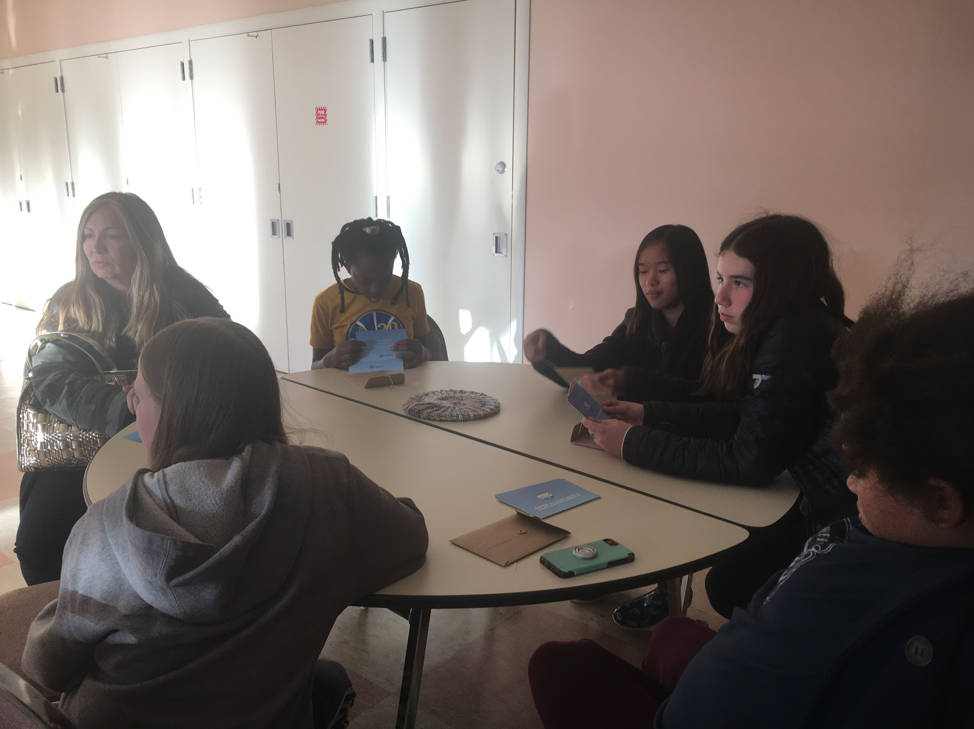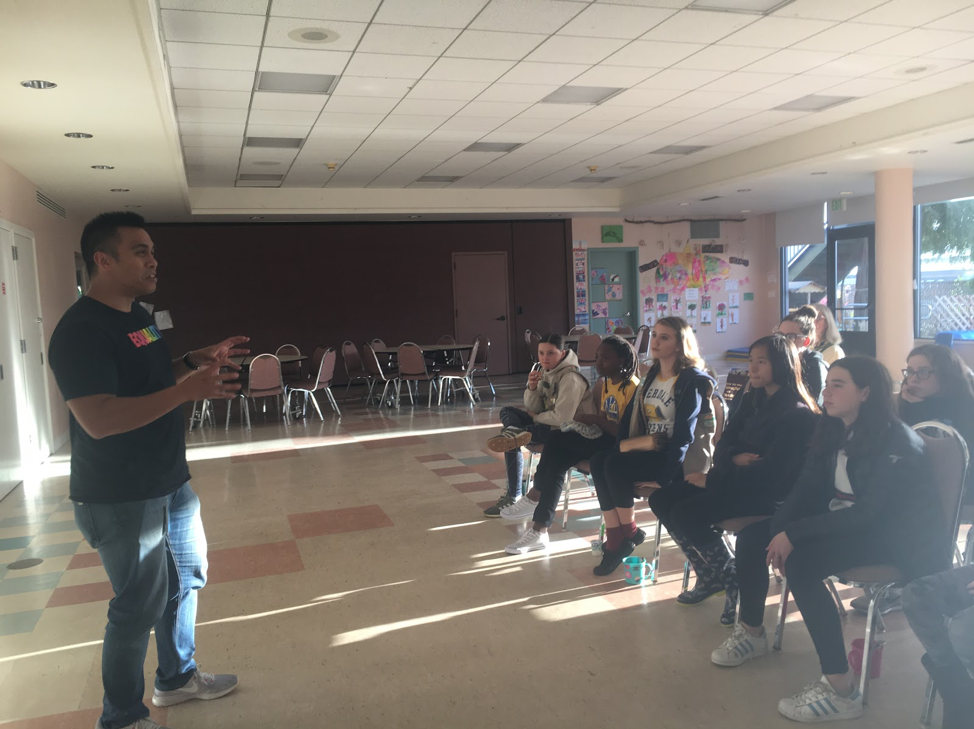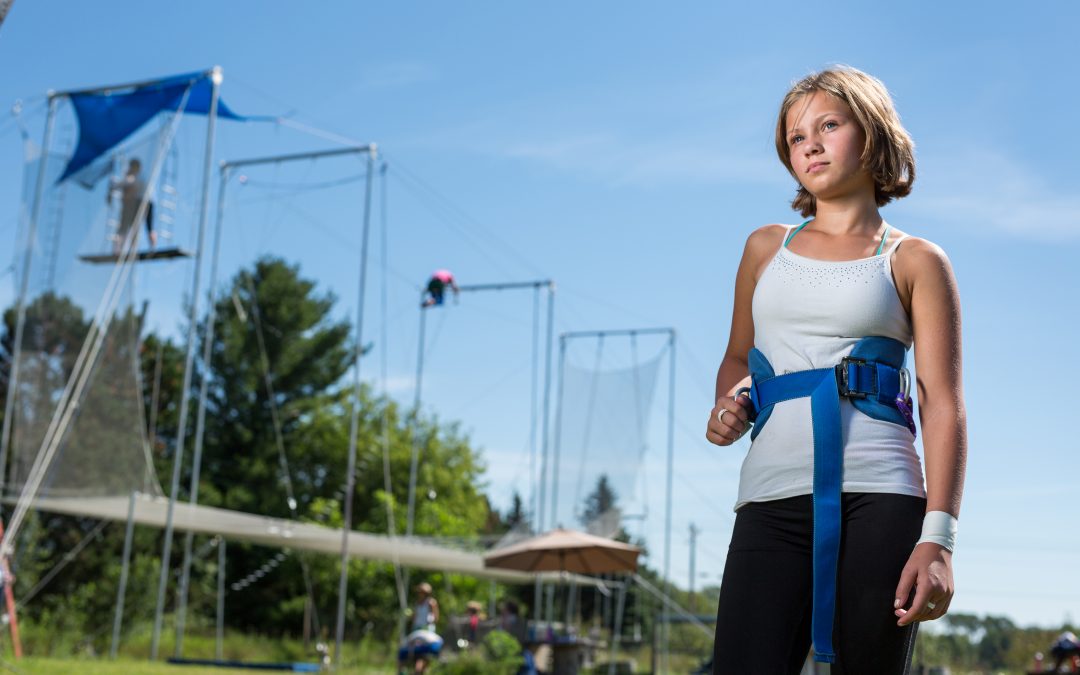Every fall, our troop kicks off the new troop year with a budget and planning session. Like most troops, the girls decide their money-earning goals and build an activity and award plan based on their projected budget. In fall of 2017, just when I thought our plan for the year was established and all the difficult conversations and decisions were behind us, Colin Kaepernick’s protest during the national anthem caught one of our girl’s attention. In the next meeting, she decided to kneel during the pledge of allegiance, and others followed. We finished our opening, I recognized that they had “called an audible” on that meeting’s agenda, and we decided to have our own conversation about police brutality against minorities.
Pin this post for later!
I didn’t have enough expertise to go deep in the subject in that first discussion—instead, I taught them these 7 tips to have a thoughtful, informed discussion about a difficult subject. Here are the things you and your girls need to know to dive into the important (and sometimes challenging) conversations happening in our world today:
Establish ground rules.
By the time our troop started “taking a knee,” this form of protest had hit a nerve across America as a sensitive, divisive, and politically charged subject. For this topic, we decided we needed a ground rule of “No Peer Pressure”. Unlike most troop discussions with a goal of building consensus, we agreed that ‘taking a knee’ needed to be a personal choice for each girl, and not to judge each other for making our own decisions.
Keep the dialogue going.
The girls brought the conversation home and discussed it with their families. Some girls and families decided kneeling wasn’t the right choice for them, but they wanted to express their support for minorities and equality. I did my homework so that I could facilitate our follow-up discussions with facts and informed opinion, so we could explore this topic as deeply as the girls wanted. We found it was hard to keep the discussion solely focused on police brutality against minorities. It spun off into discussions of gun violence, school shootings, respecting the flag, appreciation for the military, protests, inequality, and racism. It was a complex set of issues which we needed to come back to multiple times throughout the year, and allowing the conversation to continue helped us explore the nuance of this subject and learn together as a troop.

Define the impact and outcome you want to achieve.
Discussion is the best place to start, but the conversation shouldn’t end there. I asked the girls “Where do we go from here? What are we trying to accomplish?” We’re just a small group kneeling in a room twice a month—what impact does that have on this issue? When will we stop kneeling? How do we bring together the ideas of those who are kneeling and those who are standing? Those still kneeling said they would kneel forever until there was equality, but I wanted them to see that kneeling was only the beginning; to create change, they would have to take action in some way.
Let the girls lead the way.
It can be tempting to tell your girls how they should deal with difficult situations, but the process of making their own decisions helps them to form and understand their own moral compasses. My girls realized that, kneeling or not, our group alone wouldn’t bring an end to police brutality against minorities. However, they discovered there was a path for each of them to make an impact in a way that was in line with their family values. They attended a Martin Luther King Jr. Day Community March, learned about the Black Lives Matter movement, joined the Women’s March, joined March for Our Lives, and participated in a school walkout day to protest school shootings. Not only were they now taking what they’d discussed and learned out into their communities, but they were making their own decisions about how to apply their values in the real world.
Recruit expert opinions.
To further our understanding, we invited several experts to our troop meeting. Our first speaker was a community activist who taught us how to be an ALLY—Ask, Listen, Show Up, Speak Up. We learned and practiced together, and invited other community members to share their stories of advocacy and allyship for a variety of equality causes.

Consider unintended consequences.
We then came back to the flag. We reviewed why Colin Kaepernick first sat, then decided to kneel based on feedback from veterans. He started a vital conversation about police brutality and racism in the mainstream, and donated to charities that took action, which inspired the 49ers to do the same. But not all the outcomes were 100% positive.
After our ally speakers finished, our last speaker that night was an ex-Marine. He shared his perspective as a combat veteran of the Gulf War. He told us what the flag symbolizes to him, and about his troop mates who died fighting for our right to kneel. He described what actions he has taken and witnessed for equality and freedom, and why kneeling before the flag, although an expression of free speech and protest, is hurtful to him and many others like him, because not everyone he fought beside was able to come home. These diverse perspectives helped the girls understand that every choice you make has positive and negative consequences that deserve consideration and compassion, and that being a engaged citizen meant taking responsibility for harm you cause, even if you believe your choice is the right one.
Find common ground.
By the end of our meeting, we agreed that all sides of the ‘Take a Knee’ debate want a world where everyone can get home safely and be treated fairly. We learned by being an ALLY we can take action in many ways to help make that possible.
As troop meetings start up again, I can’t wait to see what happens. Will anyone still kneel, or will they stand? Either way, I know that each and every one of my girls has grown as a person, and is committed in her own way to change the world.
Feeling inspired? Here’s what you and your girls can do next:
- These seven tips on exploring difficult topics aren’t just good for your girls’ minds and hearts—they’re good for her sash too! Cadettes can earn the Finding Common Ground badge by learning about mediation, compromise, and diversity.
- Looking for more resources to raise girls of confidence and conscience? Check out Raising Awesome Girls.
 Kristine Sumi—Kristine is the troop leader for San Francisco Cadette Troop 62424. She has been an adult Girl Scout volunteer for 12 years, and this year, entering her 5th year as a troop leader. In addition to leading her troop, Kristine will also be taking on the role of Service Unit Leader for the San Francisco Service Unit this summer.
Kristine Sumi—Kristine is the troop leader for San Francisco Cadette Troop 62424. She has been an adult Girl Scout volunteer for 12 years, and this year, entering her 5th year as a troop leader. In addition to leading her troop, Kristine will also be taking on the role of Service Unit Leader for the San Francisco Service Unit this summer.


